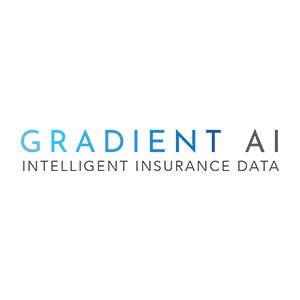AI is, quite literally, everywhere. In just the past few months, generative AI has captured the world’s collective attention and demonstrated how the field of AI holds immense promise and potential, with transformative implications for various aspects of the way we work and live.
Without question, AI will continue to undergo advancements in machine learning algorithms, enabling systems to better synthesize numerous variables at once, make accurate predictions, and adapt to dynamic environments. We can expect AI-driven breakthroughs in areas such as healthcare diagnostics, financial forecasting, and climate modeling and many more. In fact, across numerous industries, AI has reached the point where advanced computer models have been trained on large data sets, and these models continue to learn and become increasingly accurate as more data becomes available. In this way, data is the “textbook” that AI learns from, and the more data available, the more the models continue to learn.
The insurance industry, for example, is a treasure trove of data. Insurers gather, store, and manage seemingly unlimited amounts of data about every aspect of their business and the risks they protect their clients from. Most certainly, insurance is a field that operates within the world of “big data,” and as such, the digital transformation of the insurance industry is essentially complete.
That said, the insurance industry is moving aggressively towards its next major evolution – a cognitive transformation – which is making insurance businesses of all types smarter and faster. This is where Gradient AI comes in. A provider of proven artificial intelligence solutions for the insurance industry, Gradient AI improves loss ratios and profitability by predicting underwriting and claims risks with greater accuracy, as well as reducing quote turnaround times and claim expenses through intelligent automation. “We’ve got one of the largest industry data lakes with tens of millions of underwriting policy observations, claim observations, and outcomes. This data lake uniquely enables us to train and continue to refine our algorithms,” notes Stan Smith, Gradient AI’s Founder & CEO.
Gradient AI enables insurers to amplify their underwriting capabilities by helping them gain a more complete, in-depth picture of risk, avoid excessive risks and also recognize good risks that others miss. Accurate underwriting predictions are essential to maintaining loss ratio and profitability across an insurer’s book of business. Gradient AI’s Underwriting solution assigns a relative risk score to each application, which insurers can use to either avoid or appropriately price applications based on the level of risk and the insurer’s risk profile. The top and bottom lines are modeled based on the impact of these decisions.
On the claims side, adjusters and claims managers are challenged with keeping up with large and growing caseloads which are becoming more acute at a time of staff shortages and an aging and retiring workforce. Gradient AI’s Claims solution enables insurers to improve these claims operations with an “early warning” of the most potentially expensive claims, to focus proactively and allocate resources where needed, while reducing the cost and duration of claims. Additionally, Gradient AI’s advanced Claims solution captures the collective institutional knowledge of seasoned team members and deploys AI models to impart this wisdom to newer, less experienced employees, providing “guideposts” to help them perform more effectively.
Recognizing the insurance industry’s most challenging business problems, Stan Smith founded Gradient AI in 2018. With nearly 30 years of experience growing AI and technology organizations, Smith’s leadership skills and unrelenting passion for innovation ensure that Gradient AI is applying the latest AI and ML technologies to the insurance industry. The result is proven financial performance for its customers – which include some of the most recognized insurance carriers, MGAs, MGUs, TPAs, risk pools, PEOs, and large self-insured employers across all major lines of insurance. “Leveraging AI for underwriting or managing claims is about driving efficiency and effectiveness. And that translates into better decisions, and better outcomes,” explains Smith.
Since its inception, Gradient AI has been a pioneer in redefining the way insurance providers leverage AI solutions. The outcomes that the company has driven for its clients serve as concrete evidence of Gradient AI’s value proposition. For example, on the underwriting side, a Gradient AI client reported a 13% decrease in its loss ratio, an 80% decrease in quote turnaround times and an 86% increase in the direct written premium per employee as a result of implementing Gradient AI’s Underwriting solution. And on the claims side, CCMSI, one of the country’s largest third-party administrators, leveraged Gradient AI’s claims management solution to save its clients over $300 million and reduce the duration and cost of claims, as confirmed by an independent study.
Clearly, AI is already transforming the way insurers manage both their underwriting and claims management operations, and AI adoption continues to expand as more insurers leverage AI to address an ever-increasing range of needs for which artificial intelligence is increasingly well-suited. In the data-rich environment that characterizes the insurance industry, as AI becomes an even more critical component of virtually all core insurance operations, the cognitive transformation is already well underway.












